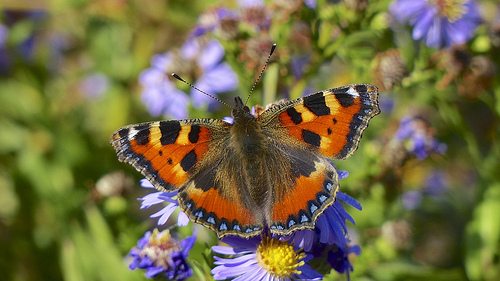

Environment
Common UK butterflies ‘thrived’ after warm summer in 2013
A survey of common UK butterfly species has found that many have thrived as a result of the sunny and warm 2013 summer – after a worrying decline was observed in 2012.
According to the latest Wider Countryside Butterfly Survey (WCBS), led by conservation groups Butterfly Conservation, the British Trust for Ornithology and the Centre for Ecology & Hydrology (CEH), many species flourished last year.
The brimstone, common blue, small copper, small skipper, large skipper and small tortoiseshell butterflies, all commonly found in the UK, recovered from their worst years on record in 2012.
Experts say that butterflies were hugely helped by 2013’s weather.
Dr Zoë Randle from Butterfly Conservation said, “Farmland butterflies really thrived last year primarily due to the fantastic summer weather which provided ideal conditions with several recording their best ever WCBS results.”
Meanwhile, Kate Risely from the British Trust for Ornithology added, “It’s great news that populations of widespread butterfly species increased in 2013. These results demonstrate the value of large-scale volunteer surveys for monitoring country-wide trends in butterfly numbers.
“Recording butterflies and birds at the same sites gives us a unique insight into the health of our countryside.”
However, experts have warned that this year’s mild winter and recent extreme rainfall could reverse the positive trend. While flooding might harm some species of moth, warm winters increase the risk of fungi and other diseases and might actually lead the butterflies to emerge earlier, when less food is available.
Further reading:
Climate change linked to penguin chicks deaths in Argentina
Biodiversity in UK overseas territories face ‘immediate and significant threats’
Study reveals decline of 16 bird species in the UK
‘FTSE index’ of threatened wildlife charts 60% decline since 1970


 Environment11 months ago
Environment11 months agoAre Polymer Banknotes: an Eco-Friendly Trend or a Groundswell?

 Features10 months ago
Features10 months agoEco-Friendly Cryptocurrencies: Sustainable Investment Choices

 Features11 months ago
Features11 months agoEco-Friendly Crypto Traders Must Find the Right Exchange

 Energy10 months ago
Energy10 months agoThe Growing Role of Solar Panels in Ireland’s Energy Future





























